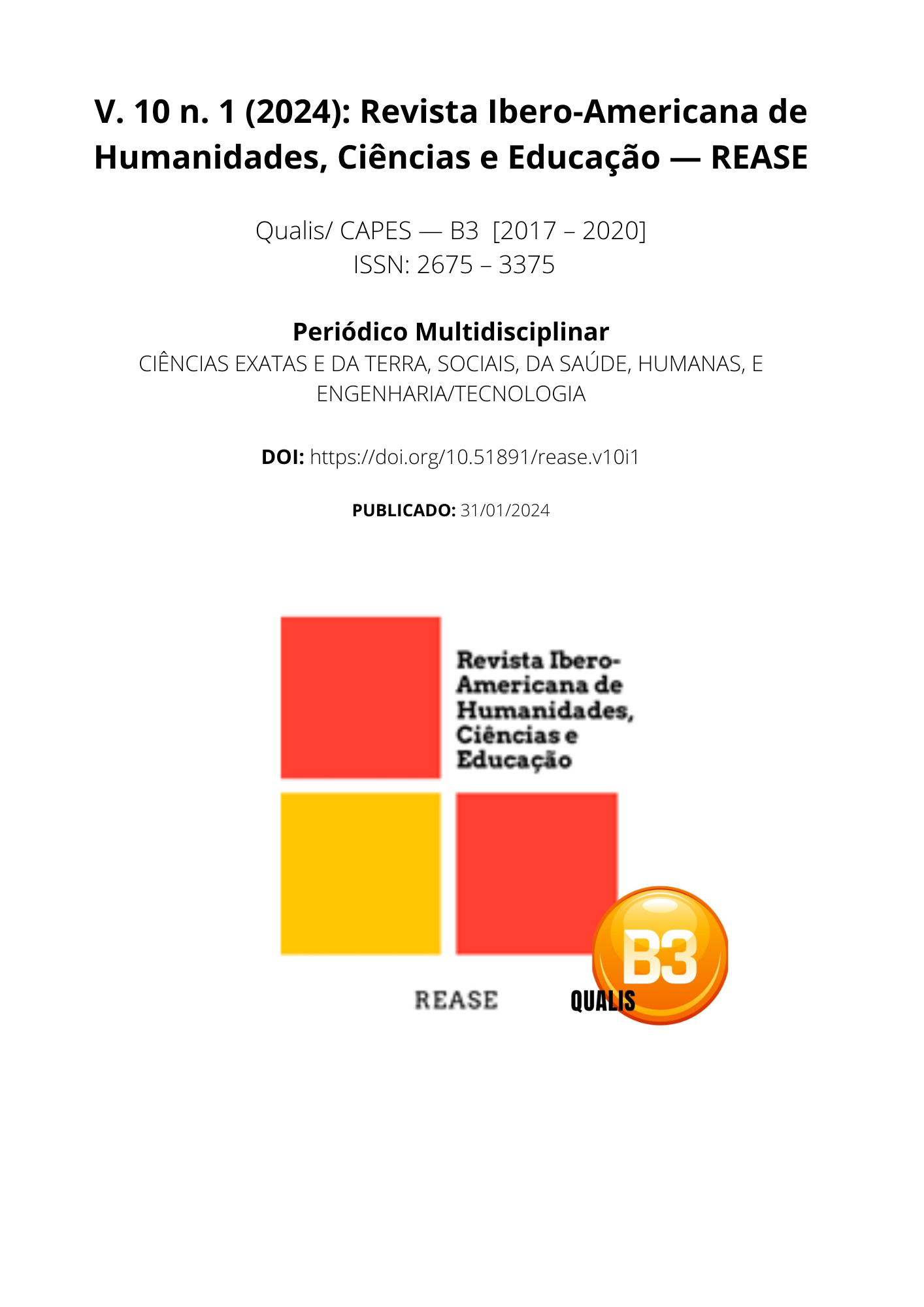EXPERIENCE REPORTS FROM SUPERVISED INTERNSHIP I: WORKING ON PLAY ACTIVITIES WITH 2ND YEAR STUDENTS
DOI:
https://doi.org/10.51891/rease.v10i1.12978Keywords:
Internship. Recreational activities and Learning.Abstract
The internship is essential in the training of a teaching degree course teacher, as it is a learning process that provides the student with mastery of theoretical and practical instruments essential for carrying out their functions and aims to benefit from the experience, and also gives the possibility for faculty promote the development of knowledge acquired during their graduation. This article aims to report the activities carried out during supervised internship I in elementary education from 1st to 5th year in a state public school, where the pedagogical action plan was developed to show the importance of playful games in learning. The intention of doing a practical class using playful activities arose through the methodology used by the teacher responsible for the class, where only the whiteboard and the textbook were used, making the class repetitive and thus lacking feedback, however, We diagnosed that playful activities could contribute to better fixing the content that was exposed. It was with the intention of showing that playful activities contribute to the development of learning, as working with playful activities develops in children various skills such as attention, memorization, imagination, in short, all the basic aspects for the learning process, which is in training. The activities that were applied were related to the syllabic family, where the highlighted subject was separation of syllables. The action plan was divided into two moments, in the first, using balloons, matchboxes and A4 sheets of paper, we developed four playful activities related to the subject. In the second moment, with the support of a Datashow and a Notebook, we used two educational software, named “Syllabic Train” and “Syllable Separation”. However, the teacher needs to understand that learning can be developed using other methodologies, thus leaving traditional methods and techniques aside. With this, we highlight that recreational activities are important for good learning, making classes more dynamic, thus transforming them into enjoyable classes to build integration between everyone who attends.
Downloads
Downloads
Published
How to Cite
Issue
Section
Categories
License
Atribuição CC BY

